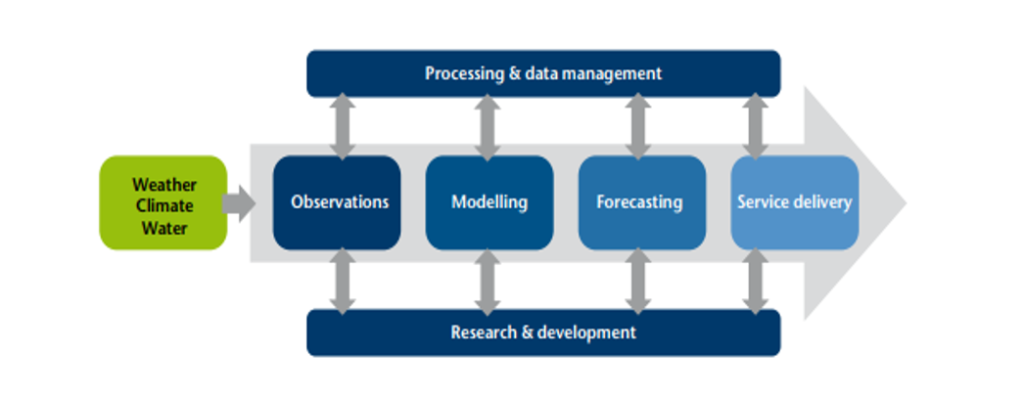The main objective of ClimSA is to strengthen the capacity of the ACP regions to build resilience to climate change, mitigate its effects, and adapt at the national and regional levels. More specifically, ClimSA helps strengthen the implementation of the climate services value chain that is articulated in five components:
The figure on the right illustrates the elements of the climate services value chain; the implementation of each of these elements in the ACP regions is being supported by WMO under its ClimSA grant.

Background
The Intra-ACP [African, Caribbean, Pacific Group of States] Climate Services and Related Applications Programme (ClimSA) – with EUR 85 million in funding from the European Union – aims to improve the production, access to and use of climate information, services and applications for decision makers. The project will foster sustainable development through the prevention of desertification, preservation of ecological biodiversity and the sustainable use of water management in ACP countries.
ClimSA supports the implementation of the Global Framework for Climate Services (GFCS) whose vision is: “To enable better management of the risks of climate variability and change and adaptation to climate change, through the development and incorporation of science-based climate information and prediction into planning, policy and practice on the global, regional and national scale.”
The WMO grant of EUR 5.5 million (2020-2024) supports ACP regional and national partners to improve the climate services value chain in five priority sectors: agriculture, disaster risk reduction, energy, health, and water. Underpinned by capacity development and knowledge management, WMO technical guidance addresses observations, data, predictions, models and the mainstreaming of climate services into policy processes.
Key partners of the programme are:

A branch of the Ministry Economic Growth and Job Creation (MEGJC)